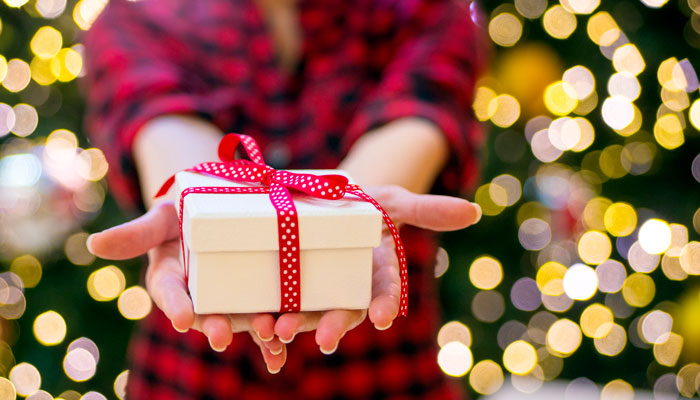For an act that’s meant to be joyful, gift giving is surprisingly stressful.
Video journalist: Sophie Gidley.
Perhaps it’s the hours spent pacing department store aisles, desperately hoping for inspiration to strike – or perhaps it’s the knowledge that even if someone doesn’t like your gift, they’ll still pretend to out of politeness.
Despite our best intentions, we’ve all received – and given – bad gifts. A common reason why is people often choose a gift based on the reaction they think the receiver will have when they unveil it rather than thinking about how the gift will be used afterwards, according to Associate Professor Melissa Norberg, Deputy Director of Macquarie's Centre for Emotional Health, and student researcher Cathy Kwok.
"Consumer psychology research shows that people really focus on the reaction of the recipient, rather than the practical use of the item itself,” Kwok explains. “So gift-givers really want that wow factor, that surprise.
“We're motivated to give unique items – but they might not be what the recipient wants.”

Norberg agrees.
"You might give someone a luxury item that seems fabulous, and your receiver might be excited in the moment – but then they ultimately don’t use the gift and it ends up sitting on a shelf,” she says. “So it’s better to look at the long-term practicality of the item, and whether someone will actually use it."
Some people make the mistake of giving gifts they want themselves – and others give gifts they think will make them look good.
"Some research shows that givers can be more concerned about satisfying their own motive to appear in a social setting as a great giver, again at the expense of choosing a gift that has long-term practical use for the recipient," Kwok says.
Another reason why we often give unwanted gifts is that we don’t receive accurate feedback – and so we keep making the same mistakes.
“Some people aren't very honest about what they actually thought about the gift – so that makes it hard,” Kwok says. “And there’s the expectation that you should surprise someone, which then makes it even harder.”
So what should you buy someone for Christmas?
“The research says you should just ask people what they want – and get them what they want,” Kwok says.
“Just get over the taboo of asking people what they want,” Norberg adds. “Get them something practical, something they want. The gift will be more likely to get used, rather than sit there collecting dust or be re-gifted or returned. Giving people a gift they actually want will help your receivers feel like they are being listened to and that you value their opinions. ”
However, if for some reason you just can’t bring yourself to do that, then there are some other tips for you:
“There is some research that suggests that if you share similarities with the person you’re giving to, and you buy both of you the same item, that can increase the value of the gift and bring you closer,” Norberg says.
“Even just saying you got yourself the same thing can increase the value of the item," Kwok adds. “If it reminds you of that person, it makes the item seem more valuable."
Give them an experience
“Ultimately, you should get the person what they want – but sometimes what they want is a gift that's sentimental. Givers often avoid such gifts, fearing that they will get it wrong,” Norberg says.
“To pick a good sentimental gift, first think about gifts the receiver will use. Then choose the gift that ties into your relationship with that person. For example, if someone’s a red wine enthusiast, you might get them a bottle of red – and that’s a practical gift. But perhaps you remember what bottle of red wine you shared on your first date with that person. Pick that particular wine and you turn a practical gift into a sentimental gift.”
Research shows that experiential gifts foster stronger relationships than material gifts. You don’t even have to engage in the experience with the gift receiver for the gift to bring you closer, Norberg says – relationships seem to strengthen via the emotions experienced at the time the gift is used (such as during the concert), rather than when the gift is received.
Giving people experiences – such as a concert ticket or a beach holiday – can also be better for the environment.
“Australian households generate nearly 13 million tonnes of solid waste per year, with almost half of this waste being disposed of in a landfill,” Norberg says. “So we need to be less concerned with stuff and reinforcing materialistic desires. "




